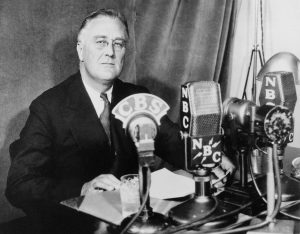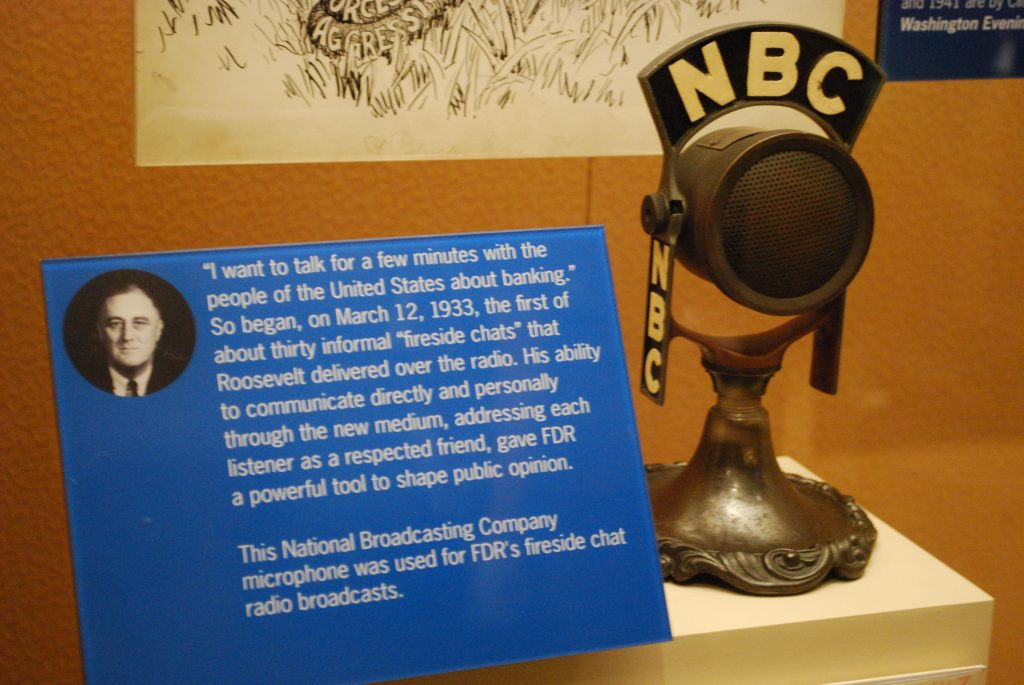Presidential Podcasting
 When Franklin Delano Roosevelt needed to communicate to America at large, rather than putting out a speech and letting the newscasters pick it apart, he went on the radio for about thirty minutes and spoke. He did that thirty more times between 1933 and 1944. I affectionately refer to it as “presidential podcasting.”
When Franklin Delano Roosevelt needed to communicate to America at large, rather than putting out a speech and letting the newscasters pick it apart, he went on the radio for about thirty minutes and spoke. He did that thirty more times between 1933 and 1944. I affectionately refer to it as “presidential podcasting.”
Of course, it wasn’t referred to as podcasting back then, but that’s essentially all it is. A podcast is basically a radio program without the transmitter and tower. People listen to it by downloading it or streaming it right off of the Internet.
I think it was a journalist that coined FDR’s radio segments as “Fireside Chats,” which is a great metaphor, because that’s how audio is consumed. When I was in broadcasting, I used to tell my announcers that the best radio shows are those that are being conducted as if we’re having a conversation, and there’s only one person listening in.
Right up until close to the time of his death, FDR he was doing these Fireside Chats on a fairly regular basis. He spoke on the economy in 1930s, starting with the banking crisis, moved on to judiciary topics of all kinds, and then things pretty much escalated into a discussion of World War II.
Ronald Reagan used his broadcast experience when he was governor of California in a daily radio commentary from 1975-1979. This helped lay the foundation for his presidential run in 1980. As President, he picked the tradition up left by FDR, and began the Saturday morning weekly address, which each President since has continued.
You don’t have to be the President of the United States to share your expertise. The beauty of the medium is that you’re able to establish your credibility and then talk in a way that let’s people deepen their understanding of what it is that you do and the kinds of problems that you help your customers to solve.
